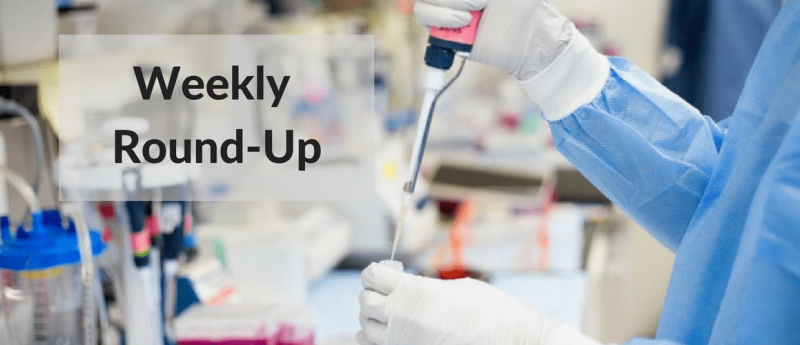Cell therapy weekly: advances in solid tumor and stroke therapy

This week: amniotic cells demonstrated to be effective against stroke injury and civil litigation could encourage further regulatory attention on unproven stem cell treatments.
The news highlights:
First subject treated in allogeneic solid tumor therapy
Baylor ethicists assess impact lawsuits against for-profit stem cell clinics
Human amniotic cells found to reduce injury and aid recovery after stroke
First subject treated in allogeneic solid tumor therapy
A new clinical trial targeting advanced solid tumors has treated its first patient. FATE-NK100, from Fate Therapeutics, Inc. (CA, USA) is an allogeneic adaptive memory natural killer (NK) cell cancer therapy that can be administered as both a monotherapy and in combination with trastuzumab or cetuximab. This is the third clinical trial for FATE-NK100, which is almost being investigated for the indications of refractory or relapsed acute myelogenous leukemia and ovarian cancer resistant to, or recurrent on, platinum-based treatments.
“Patients with cancer often have deficient or dysfunctional natural killer cells. The co-administration of FATE-NK100 alongside a targeted monoclonal antibody therapy is a novel approach to restore a patient’s immune cell function and to selectively recognize and kill antibody-coated tumor cells,” commented Manish R. Patel, Assistant Professor, University of Minnesota and lead investigator of the clinical trial at the Masonic Cancer Center.
“We are excited to have initiated what we believe to be the first clinical investigation of healthy allogeneic donor NK cell therapy in combination with FDA-approved monoclonal antibody therapy for solid tumor malignancies. This new treatment paradigm holds great promise for cancer patients who have progressed on or failed monoclonal antibody therapy and have no other therapeutic options.”
Baylor ethicists assess impact lawsuits against for-profit stem cell clinics
A new study in npj Regenerative Medicine from Baylor College of Medicine (TX, USA) and Mayo Clinic (NY, USA) aims to assess the impact of individual and class action lawsuits brought against clinics touting unproven stem cell treatments. The authors posit that civil lawsuits can foster a sense solidarity amongst patients that have undergone treatments as well as set a legal precedent, alter the media narrative and encourage authority attention whilst stressing the need for safety and efficacy.
Zubin Master, corresponding author and associate consultant, Mayo Clinic, commented: “It seems that many in the general public believe that clinics providing for-profit stem cell therapies provide innovative medical care or cutting-edge experimental treatment. This is an inaccurate portrayal of the current for-profit stem cell marketplace.”
“Many of the clinics that offer direct-to-consumer stem cell therapies are operating outside of FDA regulations and with no scientific evidence of efficacy, so it has become a patient protection issue,” said Claire Horner, assistant professor, Baylor, and first author on the paper.
“Our analysis demonstrates that this can be a legitimate avenue to encourage stronger FDA enforcement to end unproven, direct-to-consumer stem cell therapies.
Human amniotic cells found to reduce injury and aid recovery after stroke
A 7 year project led by researchers at La Trobe University (VIC, Australia) has found that the impact of stroke was less severe, and recovery was significantly reduced, when human amnion epithelial cells were administered at time frames from 90 minutes to 3 days. The research was conducted with scientists from Monash University and Monash Health (VIC, Australia). A first-in-human trial will shortly commence to assess feasibility and safety.
“These cells are abundant, they are discarded after birth and they don’t require any treatment before being used,” explained lead research Professor Chris Sobey (La Trobe). “They already contain natural immune-suppressants which means the patient’s body won’t reject them and they don’t form tumors — both issues with other forms of cell therapy.”
For more weekly cell therapy news, read previous editions of the cell therapy weekly.